Bittersweet Tale
of Two Towns

SUE BRATTLE
Moutai, Maidstone and Changing Fortunes
Moutai town and distillery, China, and brewing in Maidstone, England
AT FIRST glance, it may seem that a brewing town in the south of England and a distillery town in China have little in common. But having grown up in one and visited the other, it seems to me that the people from my hometown would recognize a lot about life in Moutai.
Both towns sit on rivers, which in different ways have shaped their history. In Moutai, the distillery uses five tons of water from the Chishui river every day to make China’s most famous spirit.
In Maidstone, Kent, the River Medway has been the trading route for fruit, vegetables, quarried stones, chalk, cloth, wood – and beer – for centuries, with flat-bottomed barges carrying goods to the bigger nearby towns and across the sea to Europe.
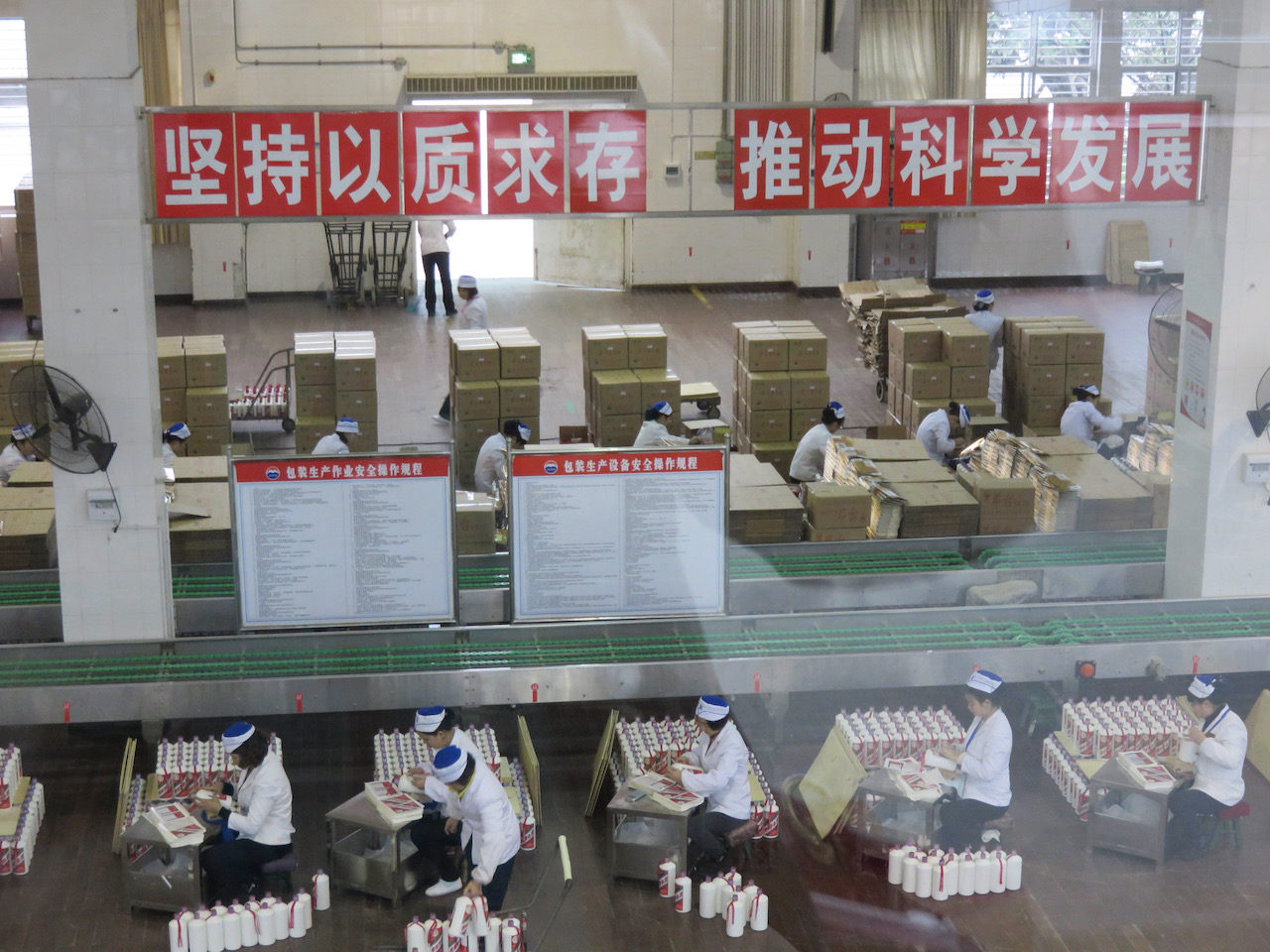
But the two towns are experiencing different turns of history’s wheel. Moutai is currently home to the biggest drinks industry in the world. It is looking abroad to expand its export market (95 percent of its sales are in China), and there is even talk about making the 53 per cent proof spirit weaker for the foreign palate.
“We are trying to build the town as a tourism destination, with a 25.2 million yuan (US$3.87million) investment by the local government,” Ding Da Gong, deputy director of Moutai’s tourism administration, told me during my visit.
Around two million tourists visit Moutai in an average year, and Gong said: “Hardly any of them are foreigners. Most of the tourists are from within the province, or are here on business.”
Bid for Tourists
Moutai is trying to entice visitors with more hotels and roads, hiking trails and tastings of baiju, the generic name for the explosive clear liquor that Moutai is famous for. But the town is a four-hour drive from the airport in south-west China’s Guizhou province capital, Guiyang, and an eight-hour round trip is a big commitment for a visitor. On the other hand, the town offers a unique experience which tourists won’t find anywhere else.
My hometown of Maidstone is in the county of Kent, southern England. This places it perfectly for the tourist trade; Europeans going to the UK from mainland Europe by ferry inevitably drive through Kent on their way to London.
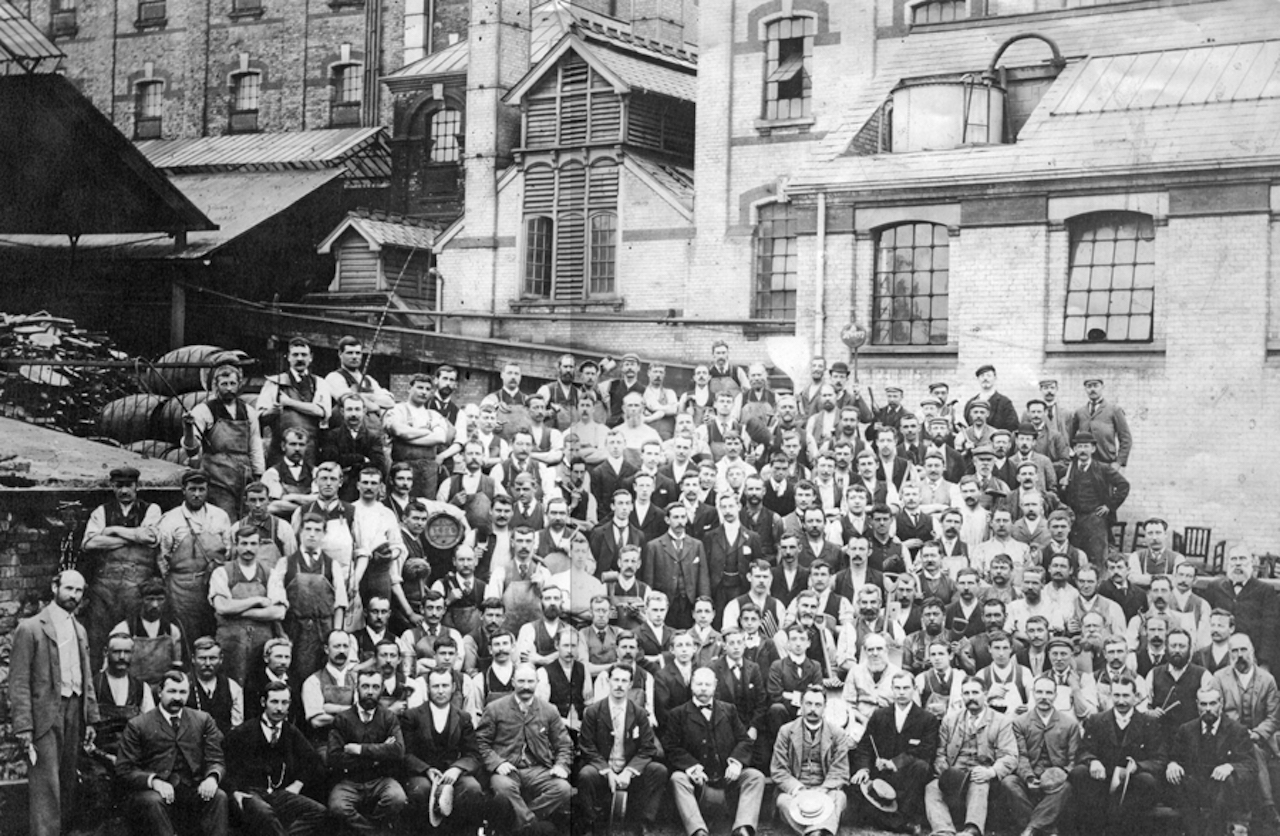
Until the 1960s, Kent was the centre of England’s brewing industry, and had been making beer from hops grown in hop gardens across the county for almost 600 years. In the 1870s, 46,600 acres of Kent was hop gardens. Then something happened that no-one seemed to predict. Today, only 1,000 acres survive. Across England, hop growing shrank from 72,000 acres to 2,650.
The landscape changed before our eyes. Hop pickers, who I can just remember as a small child, carrying long, tapered ladders and cutting the crop off the high “bines” with clippers, were replaced with machines. Then the hop gardens were “grubbed out” – ripped up and replaced with soft fruits, or housing. Cheaper hops were imported from the United States, New Zealand and Germany. And then came a generation of lager-drinkers, with lager needing far fewer hops. Hop growing and the beer and real ale industry plummeted.
Rollercoaster of Business
By then, most small breweries had been eaten up by big breweries, which later diversified or were bought by international companies. Here is an example: one of Maidstone’s big riverside breweries when I was a child was called Fremlin’s, a family-owned business with an elephant as its trademark. Fremlin’s was bought by brewers Whitbread, which in the 1990s off-loaded all its brewing interests.
Whitbread bought Costa Coffee, among many other interests, and opened 500 coffee shops across China. In 2019 Costa Coffee was sold to the Coca-Cola Company, which has now closed a tenth of Costa’s coffee shops in China due to tough competition. This rollercoaster of business interests and changing tastes makes or breaks communities such as Moutai or Maidstone.
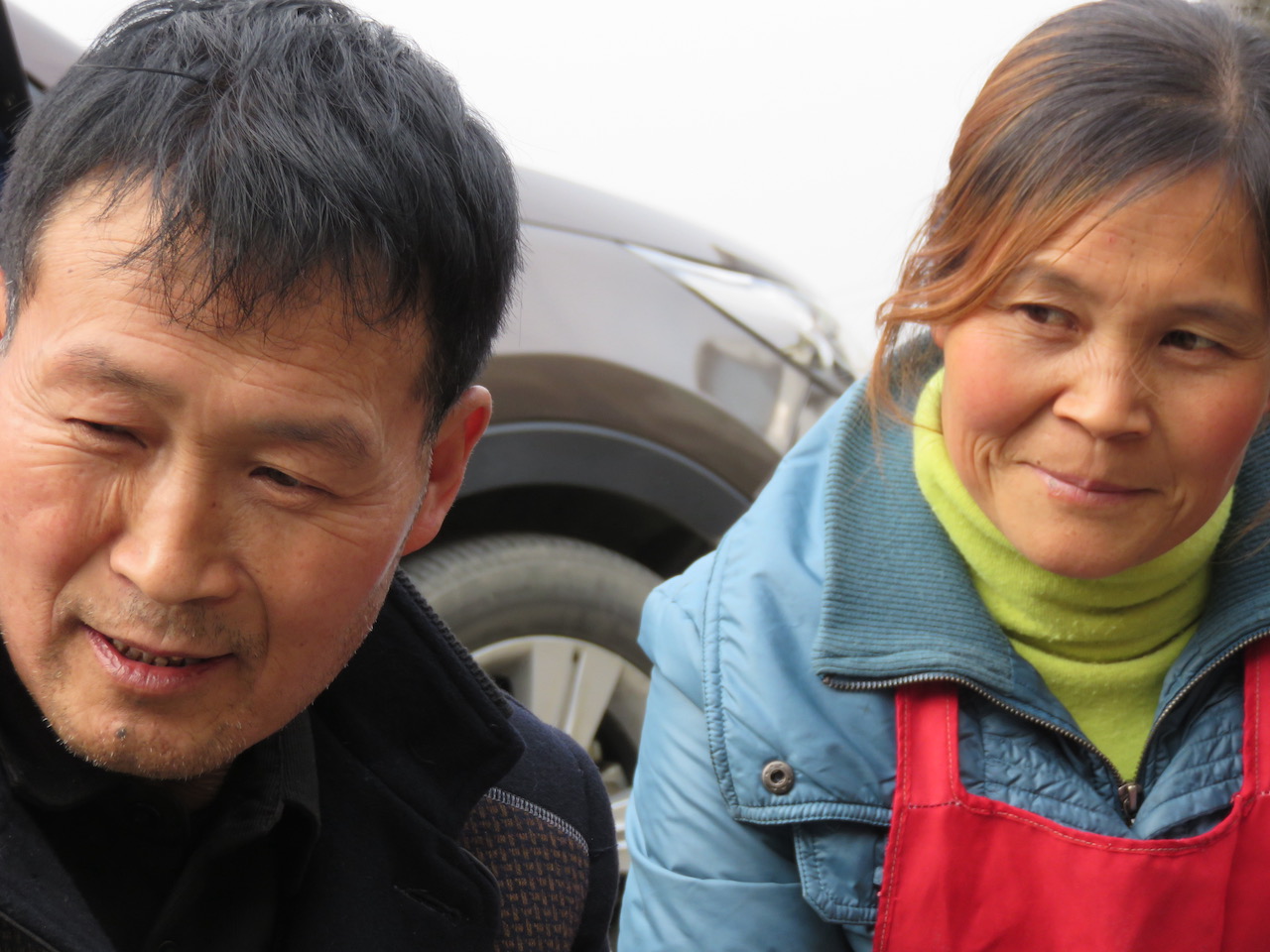
I was reminded of these turbulent changes when I met farmers Tong Hu and Tang Da Rong at their home in Tanchang near Renhuai. This husband-and-wife team sat next to each other like two tree trunks, rooted in their land and proud of the life it has given them.
But there is nothing romantic about the farmer’s life, and this couple has been rolling with the changes since 2001, when the makers of Moutai first suggested they produce the crop they need. So they moved from cultivating rice to growing sorghum, an attractive grass-like crop, for Moutai. They took a big risk in making the transition, which took three years because their soil needed to reach European Union organic standards demanded by Moutai.
“It was pretty hard,” Tong said, the master of understatement. “We were given free seeds, half-price fertilizer, and technical advice. We grew sweet potatoes during the changeover, and started planting sorghum in 2006.”
‘Parents Grew Corn’
The couple is among 70,000 farmers in the area, and I was told the average annual income per household is about 8,000 yuan (US$1,240). Times have been so hard that Tang told me: “There are more women than men farming here because some of the men go elsewhere as migrant workers to make income.”
All the more remarkable then that Tong and Tang have brought up three children; the son is now a graduate in food science and works for Moutai, one daughter went to medical college and another daughter is a finance graduate.
Will any of them take over the family farm? Tong replied: “My parents grew corn. Sometimes, as a child, there wasn’t enough to eat in the households around here. Now life is getting better. Our children will choose their own careers. We don’t know what they will decide.”
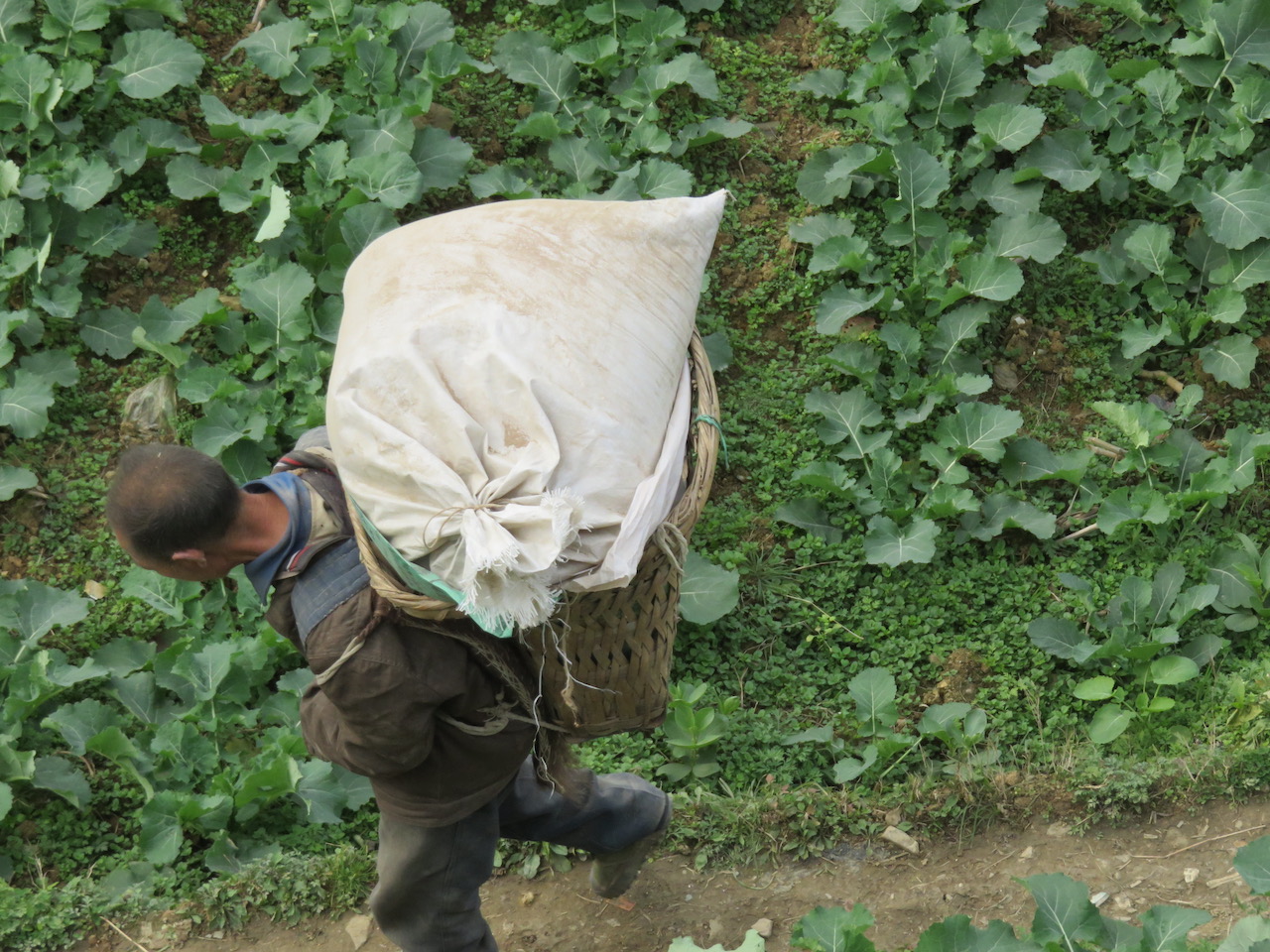
The changes in both towns are only blinks in their long, long histories. Moutai is recorded as making baiju as far back as 135BC. Until 1951 when the distillery became a State Owned Enterprise, little “workshops” – usually named after their owner – produced hundreds of different baijus and they were merged to make Kweichow Moutai, the famous brand that is now China’s national drink.
The company’s historian, who spent his working life at the Moutai distillery, is 63-year-old Hu Jingshi. He tells how Mao and the Red Army went through Moutai in 1935 on the Long March, stopping for three days to dress their wounds with the liquor.
Hu said: “We love Moutai because we love China. The buildings have changed, but the spirit of the staff is the same. Moutai will thrive because China will thrive.”
Legacy is Protected
China has taken the wise step of protecting its pride and joy. In 2013, the Moutai distillery became part of the 7th batch of Major Historical and Cultural Sites Protected at the National Level. The technique for making it is protected, too, as an intangible heritage.
Around a century after baiju was first recorded in Moutai, the ancient Romans invaded England and brought hops from Italy to Kent. At first, the tops of the plants were used in salads. For centuries the English drank ale, made from malt and honey, and “small beer”, with very little alcohol content, often as a safer alternative to dirty water.
Just like Moutai had hundreds of small workshops, consolidated by the government into the state-owned company Kweichow Moutai, Kent was scattered with little brewhouses, in homes or attached to hostelries and often run by women. The idea of brewing hops to make beer with a higher alcoholic content didn’t arrive until the 15th-16th centuries, brought to Kent by merchants from Belgium.
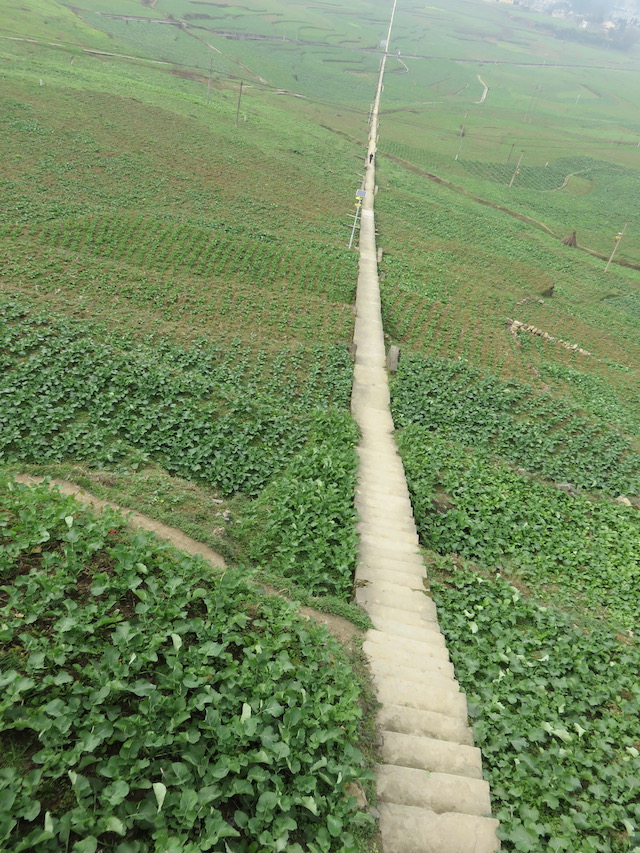
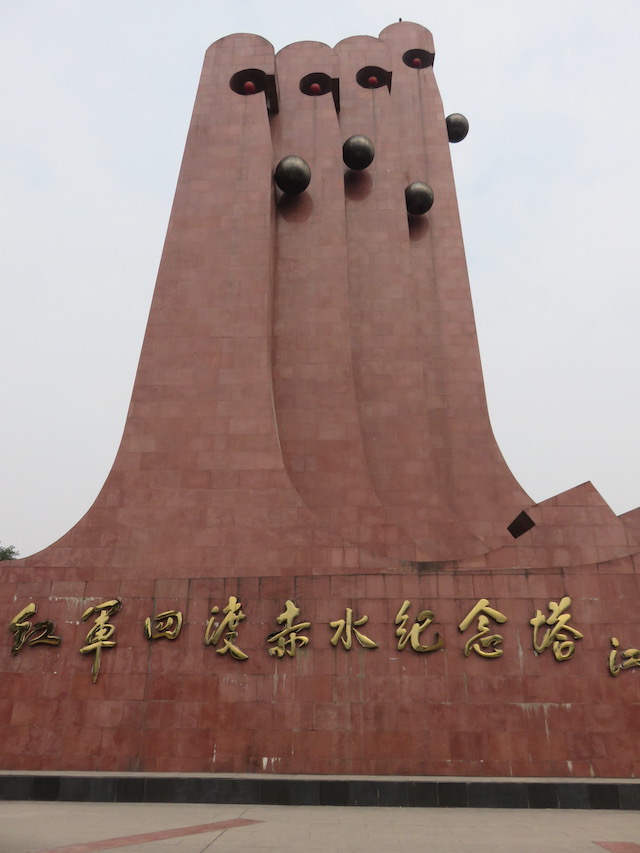
So the landscape changed, with cone-roofed “oast houses” popping up across the countryside, in which the freshly-picked hops were dried in kilns, giving off a soporific smell which drifted on the wind. They were then put in sacks and taken to the breweries. And things carried on in much the same way until the dramatic changes that began in the 1960s, described earlier.
In 2015, the drinks trade plays a very different role in the two towns. Eighty per cent of the population around Moutai is involved in the baiju trade and Kweichow Moutai is now the world’s largest and most valuable drinks company. Maidstone has only a tiny percentage of agricultural workers left with some niche hop growers. The main old brewery in Maidstone is now a shopping mall, while Moutai has ambitious plans for the growth and development of its distillery, making its love it, hate it spirit (I’m in the latter) which is marketed as luxurious and prestigious.
Climate, Soil, Water
But whatever changes take place around towns like these, they hold one trump card. Spirits, wines and beers all get their distinctive flavours from the climate, soil and water where they are made. As a result, communities come to these towns because the product cannot be produced anywhere else.
For example, Yang Yan is a 28-year-old shop assistant in Baiju Street in Moutai, where dozens and dozens of little shops sell and offer tastings of the many baiju spirits made in the town.
Yang doesn’t drink the spirit and has no roots in the area. As she served customers the “royal liquor” her boss makes, spooning it out of ceramic jars into bottles the customers bring with them, she said: “It’s mostly local traders who come here. They like the taste and they come back.
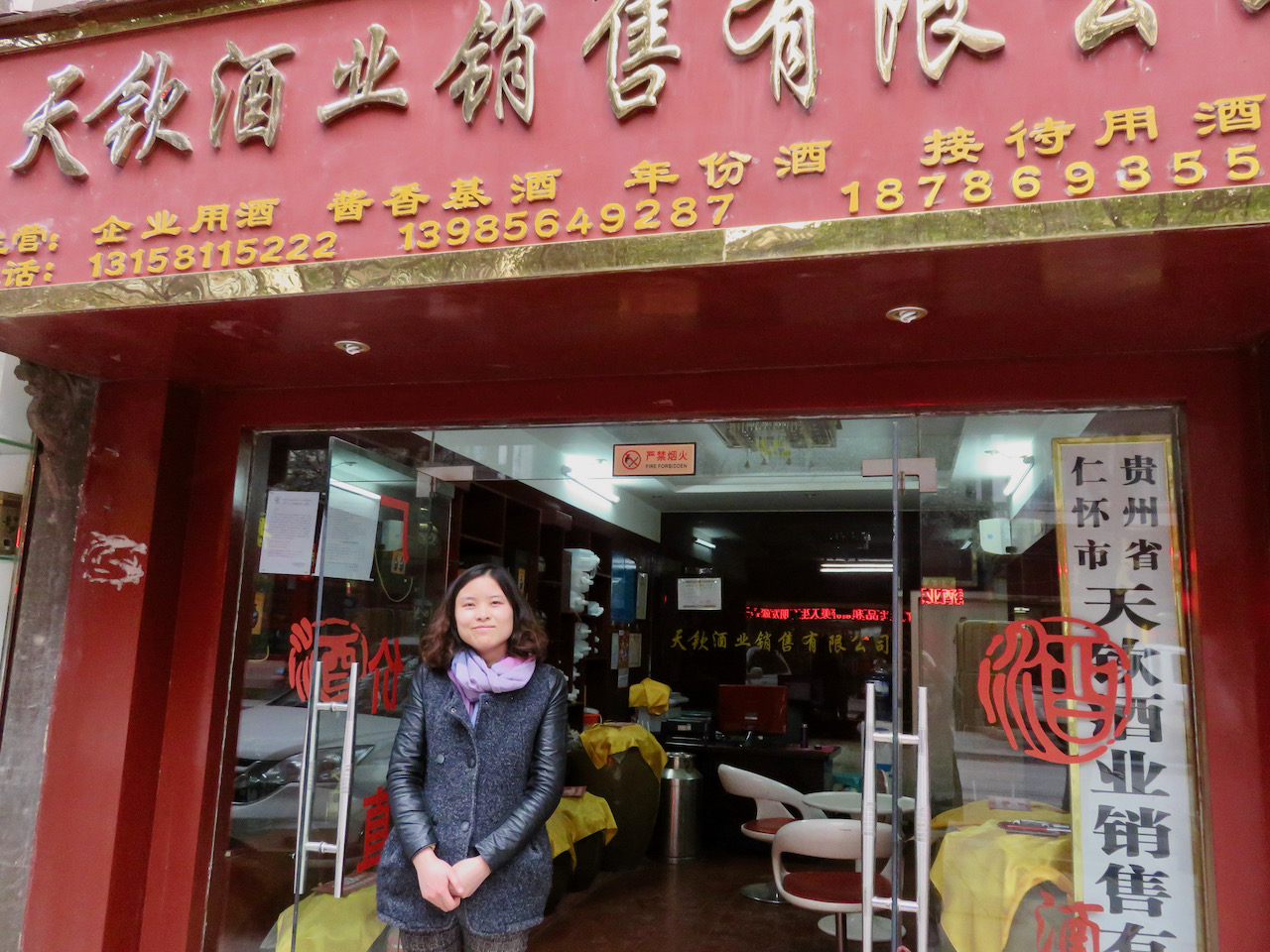
“To me, this is just a job. I have come here from Sichuan on my own, my family are still there but I needed a job.” If young people like Yang don’t share the town’s traditions, then she brings her own with her. This constant change around old industries rooted in their landscape is what helps them to survive.
In Maidstone, mechanisation and cheap imports triggered the loss of jobs around the hop growing industry. That cannot happen in Moutai. The company’s sorghum buyer is Dheo Yuan Hang, and he explained: “Most of the process, from planting the seeds to getting sorghum to the warehouse, is done by hand.” It is for the simplest reason, too. “Our geography is mountainous,” Dheo said, looking out over miles of terraced farming accessible only by narrow footpaths. “No machinery can get to the crop.”
So in Moutai, this restraint will keep the status quo in place, and the sweet smell of sorghum will continue to permeate the streets.
Wheel of History
In Maidstone, where change was so rapid that agriculture went into freefall, micro-breweries began springing up, with some pubs making beer on the premises. Across the world, craft beers started gaining popularity – and optimists said the light and aromatic hops which Kent became famous for were back in demand.
It may be a very slight and short-lived turn of the wheel of history for Maidstone, as lager still dominates the industry. If Moutai carries out its expansion plans, local people will soon experience a life-changing turn. But taken over 2,000 years, they are changes that towns like these take in their stride, while their rivers continue to flow steadily through them.
Sue visited Moutai on a paid-for Press trip while she was living and working in China. Thanks to Maidstone Museum for supplying photographs from its archive.
Top photos: A hop garden, and a surghum field. Alexander Bálly/Pixabay, and Bishnu Sarangi/Pixabay.
February 2021
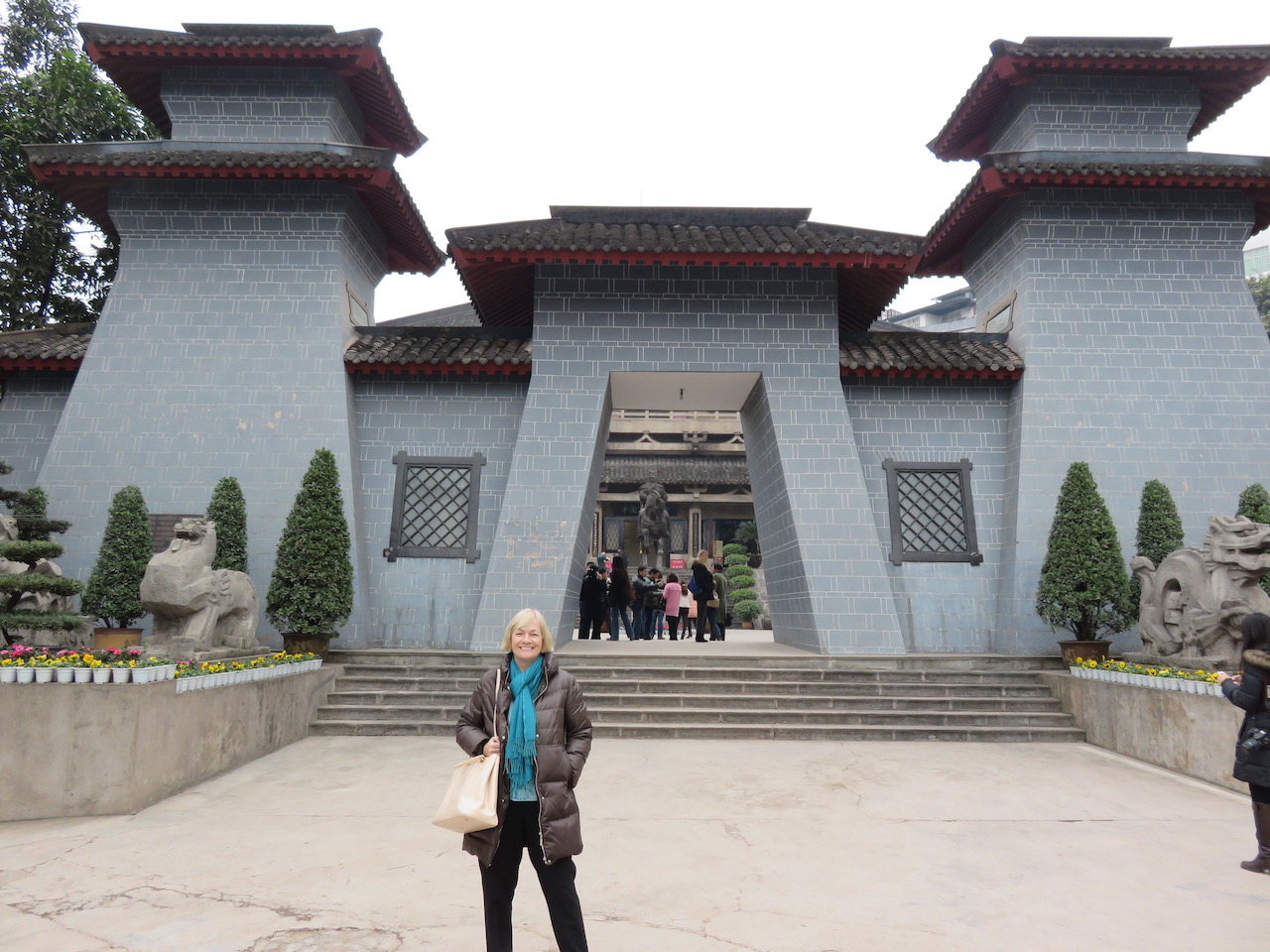
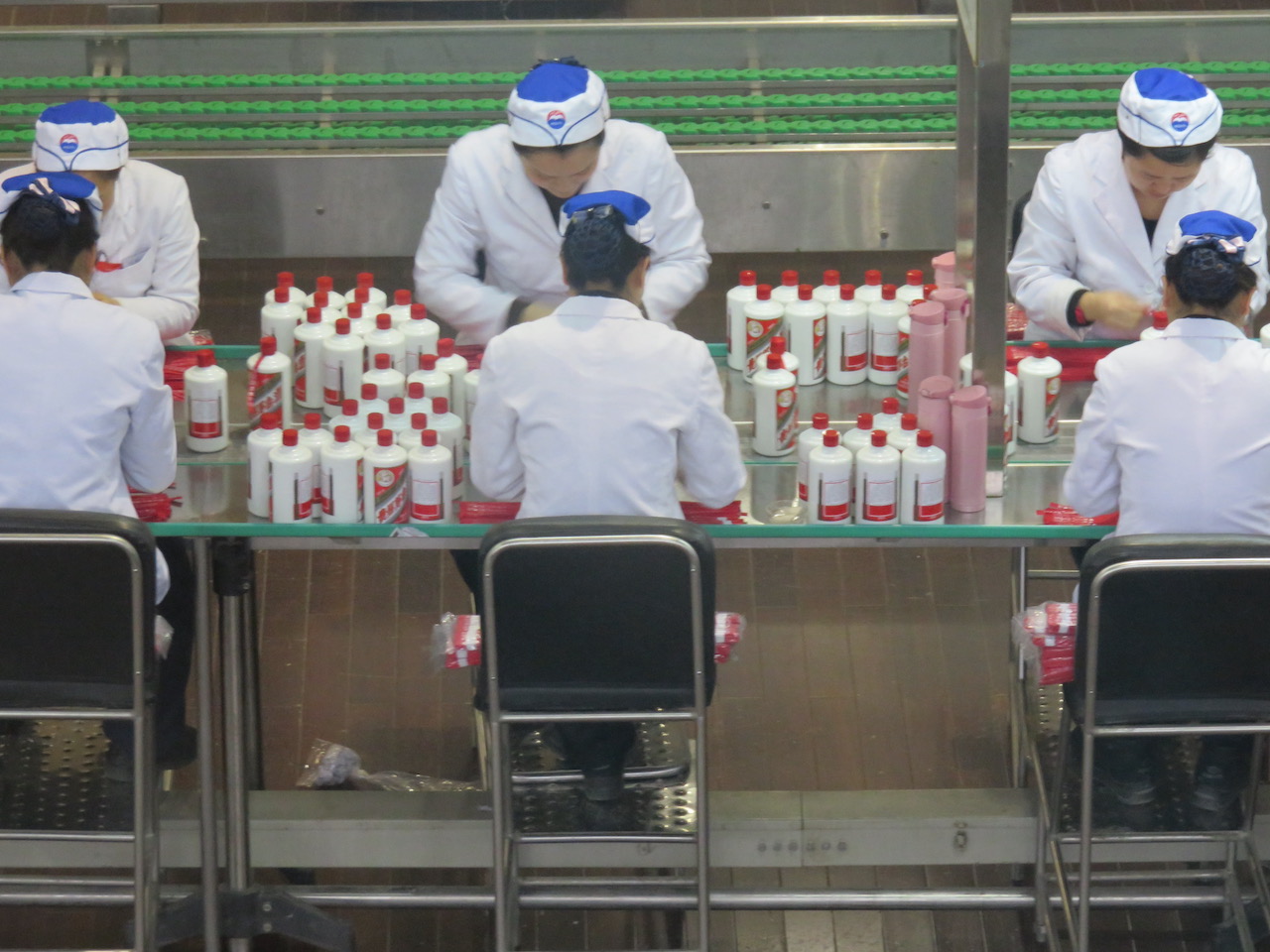
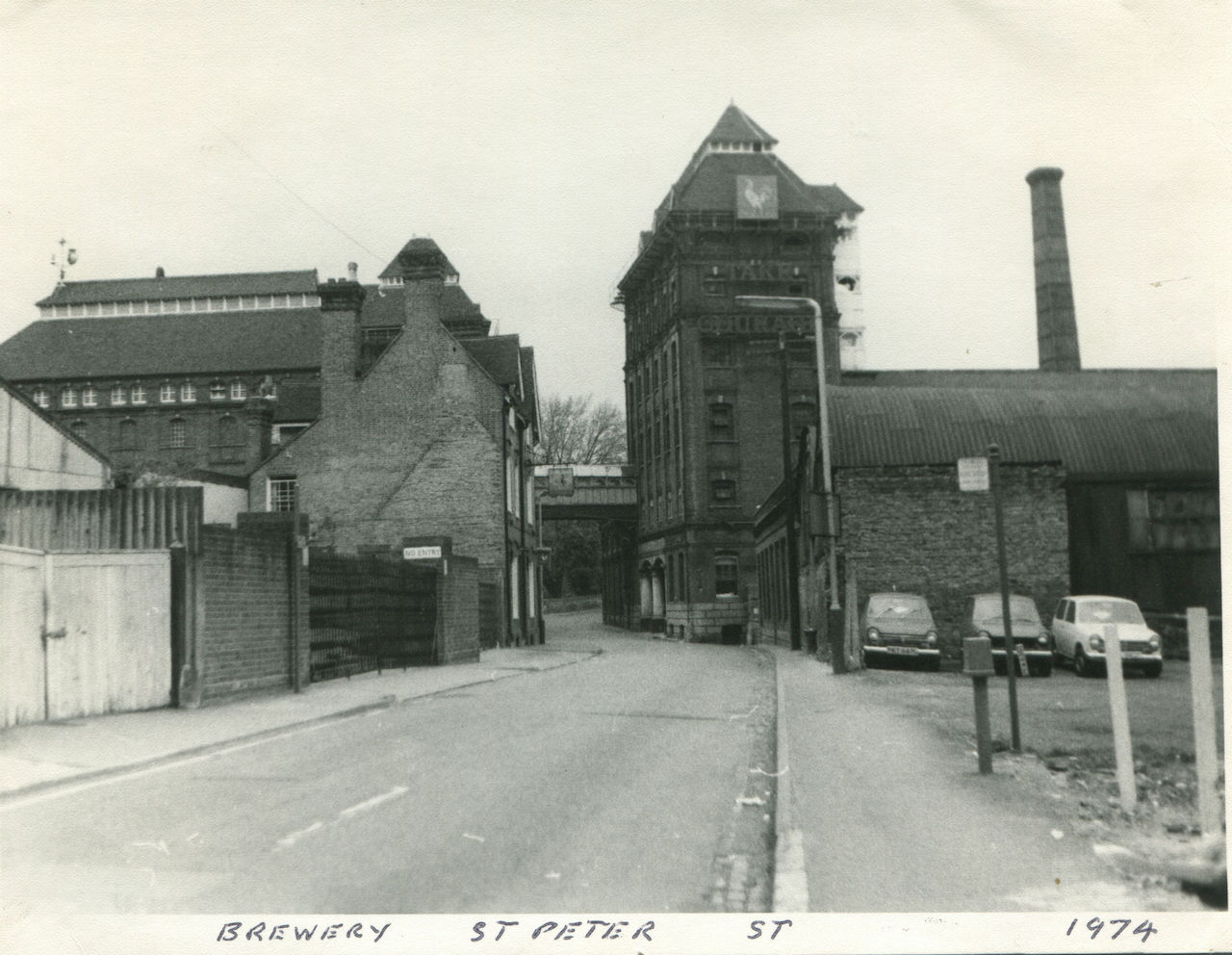
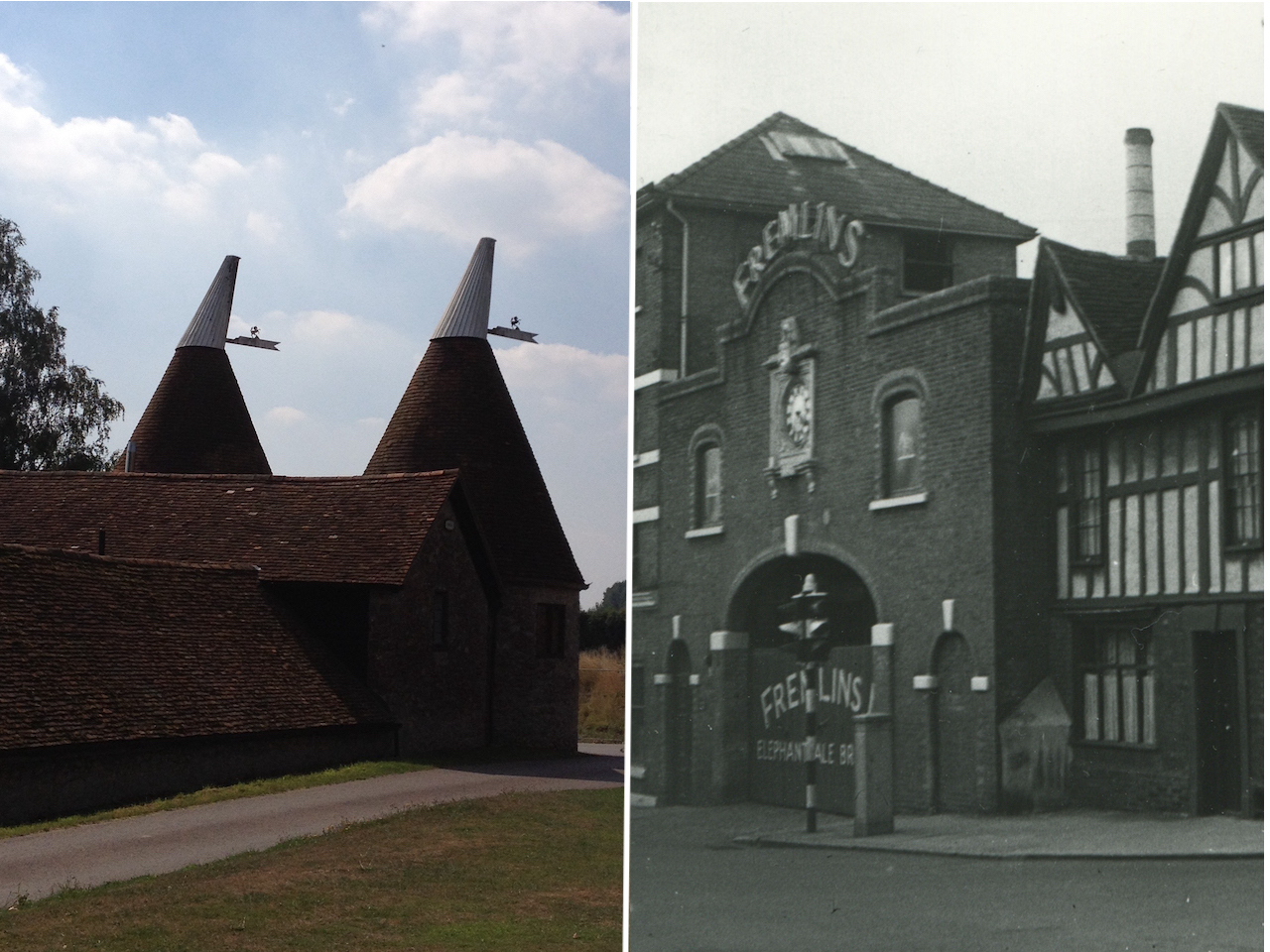
Here's 100% Proof Moutai's No Small Beer
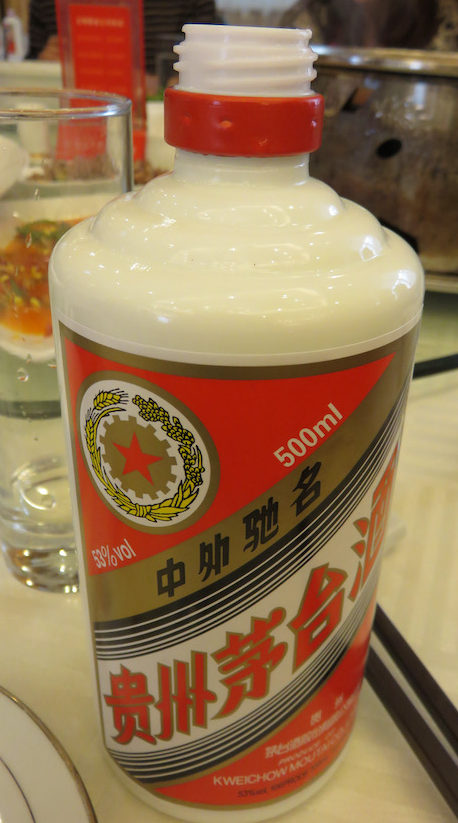 KWEICHOW MOUTAI is China’s third most valuable publicly-listed company, worth 2.65 trillion yuan (US$410 billion), and the world’s largest drinks company.
KWEICHOW MOUTAI is China’s third most valuable publicly-listed company, worth 2.65 trillion yuan (US$410 billion), and the world’s largest drinks company.
Sales dropped temporarily during Chinese leader Xi Jinping’s anti-corruption drive, which began in 2012, when government officials and civil servants were banned from offering Moutai at public meetings. They have revived since.
Mao Zedong served it to US President Richard Nixon in 1972 during Nixon’s historic state visit to China. In 1974, US Secretary of State Henry Kissinger told Deng Xiaoping, China’s future paramount leader: “I think if we drink enough Moutai we can solve anything.”
Beijing opened a Moutai Museum near the Forbidden City and just off Tiananmen Square in 2019.
Moutai is drunk in stemmed thimble-sized glasses. At official dinners each guest round the table will propose a toast and you drink it ‘down in one’ then the glasses are filled again. There is a myth that it doesn’t give you a hangover.
RELATED
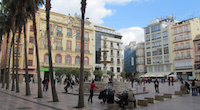 IN WITH THE GIN CROWD: Thirty-five years ago I flew into the city of Malaga in southern Spain and immediately set off along the coast. That’s what you did back then, Malaga was just the place you flew to on your way to stylish Marbella or the Costa del Sol’s mass tourism hotspots of Torremolinos and Fuengirola… READ MORE
IN WITH THE GIN CROWD: Thirty-five years ago I flew into the city of Malaga in southern Spain and immediately set off along the coast. That’s what you did back then, Malaga was just the place you flew to on your way to stylish Marbella or the Costa del Sol’s mass tourism hotspots of Torremolinos and Fuengirola… READ MORE
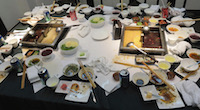 MUSEUM QUALITY FOOD: The Chinese province of Sichuan takes its distinctive style of cooking very seriously — so much so that it has set up a museum devoted to the subject… READ MORE
MUSEUM QUALITY FOOD: The Chinese province of Sichuan takes its distinctive style of cooking very seriously — so much so that it has set up a museum devoted to the subject… READ MORE
 JINSHA SITE MUSEUM: In 2001, builders in China discovered a previously unknown ancient site, and subsequent excavations uncovered a vast treasure trove. READ MORE
JINSHA SITE MUSEUM: In 2001, builders in China discovered a previously unknown ancient site, and subsequent excavations uncovered a vast treasure trove. READ MORE
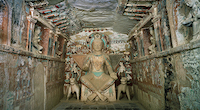 CAVES FULL OF TREASURE: For 56 years, Fan Jinshi tended a treasure trove of ancient Buddhist masterpieces at the Mogao Caves in China. Now she’s been rewarded with “Asia’s Nobel Prize”, worth $2.5 million… READ MORE
CAVES FULL OF TREASURE: For 56 years, Fan Jinshi tended a treasure trove of ancient Buddhist masterpieces at the Mogao Caves in China. Now she’s been rewarded with “Asia’s Nobel Prize”, worth $2.5 million… READ MORE
 LUNCH AT THE WORLD’S BEST RESTAURANT: Beijing’s TRB Hutong has been named TripAdvisor’s Best Fine Dining Restaurant in the World. So what makes it so special? READ MORE
LUNCH AT THE WORLD’S BEST RESTAURANT: Beijing’s TRB Hutong has been named TripAdvisor’s Best Fine Dining Restaurant in the World. So what makes it so special? READ MORE
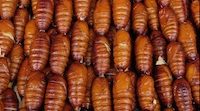 BUG, SCORPION STREET SNACKS: Starfish, larvae, bugs and seahorses were among the specialities on offer at Beijing’s Donghuamen Night Market. We recall this unusual market… READ MORE
BUG, SCORPION STREET SNACKS: Starfish, larvae, bugs and seahorses were among the specialities on offer at Beijing’s Donghuamen Night Market. We recall this unusual market… READ MORE
RECOMMENDED
 WELCOME TO OUR WORLD! Afaranwide’s home page – this is where you can find out about our latest posts and other highlights. READ MORE
WELCOME TO OUR WORLD! Afaranwide’s home page – this is where you can find out about our latest posts and other highlights. READ MORE
 TOP 10 VIRTUAL ATTRACTIONS: Many of the world’s most popular tourists sites are closed because of the coronavirus crisis, but you can still visit them virtually while you’re self-isolating. READ MORE
TOP 10 VIRTUAL ATTRACTIONS: Many of the world’s most popular tourists sites are closed because of the coronavirus crisis, but you can still visit them virtually while you’re self-isolating. READ MORE
 SHIMLA, QUEEN OF THE HILLS: Government officials once retreated to Shimla in the foothills of the Himalayas to escape India’s blazing hot summers. Now tourists make the same journey. READ MORE
SHIMLA, QUEEN OF THE HILLS: Government officials once retreated to Shimla in the foothills of the Himalayas to escape India’s blazing hot summers. Now tourists make the same journey. READ MORE
 TEN THINGS WE LEARNED: Our up-to-the-minute guide to creating a website, one step at a time. The costs, the mistakes – it’s what we wish we’d known when we started blogging. READ MORE
TEN THINGS WE LEARNED: Our up-to-the-minute guide to creating a website, one step at a time. The costs, the mistakes – it’s what we wish we’d known when we started blogging. READ MORE
 TROUBLED TIMES FOR EXPATS: Moving abroad can seem an idyllic prospect, but what happens when sudden upheavals or the inescapable realities of life intrude? READ MORE
TROUBLED TIMES FOR EXPATS: Moving abroad can seem an idyllic prospect, but what happens when sudden upheavals or the inescapable realities of life intrude? READ MORE
Disclosure: Afaranwide is an affiliate of leading travel operators such as Booking.com and Japan Rail Pass. If you purchase through our site we receive, at no additional cost to you, a small commission. We only work with companies we have used and recommend.
LET'S KEEP IN TOUCH!
Bittersweet Tale
of Two Towns

SUE BRATTLE
Moutai, Maidstone and Changing Fortunes
Moutai town and distillery, China, and brewing in Maidstone, England
AT FIRST glance, it may seem that a brewing town in the south of England and a distillery town in China have little in common. But having grown up in one and visited the other, it seems to me that the people from my hometown would recognize a lot about life in Moutai.
Both towns sit on rivers, which in different ways have shaped their history. In Moutai, the distillery uses five tons of water from the Chishui river every day to make China’s most famous spirit.
In Maidstone, Kent, the River Medway has been the trading route for fruit, vegetables, quarried stones, chalk, cloth, wood – and beer – for centuries, with flat-bottomed barges carrying goods to the bigger nearby towns and across the sea to Europe.

However, the two towns are experiencing different turns of history’s wheel. Moutai is currently home to the world’s largest drinks industry and is changing with the times. It is looking abroad to expand its export market (95 percent of its sales are in China), and there is even talk about making the 53 per cent proof spirit weaker for the foreign palate.
“We are trying to build the town as a tourism destination, with a 25.2 million yuan (US$3.87million) investment by the local government,” Ding Da Gong, deputy director of Moutai’s tourism administration, told me during my visit.
Around two million tourists visit Moutai in an average year, and Gong said: “Hardly any of them are foreigners. Most of the tourists are from within the province, or are here on business.”
Bid for Tourists
Moutai is trying to entice visitors with more hotels and roads, hiking trails and tastings of baiju, the generic name for the explosive clear liquor that Moutai is famous for. But the town is a four-hour drive from the airport in south-west China’s Guizhou province capital, Guiyang, and an eight-hour round trip is a big commitment for a visitor. On the other hand, the town offers a unique experience which tourists won’t find anywhere else.
My hometown of Maidstone is in the county of Kent, southern England. This places it perfectly for the tourist trade; Europeans going to the UK from mainland Europe by ferry inevitably drive through Kent on their way to London.

Until the 1960s, Kent was the centre of England’s brewing industry, and had been making beer from hops grown in hop gardens across the county for almost 600 years. In the 1870s, 46,600 acres of Kent was hop gardens. Then something happened that no-one seemed to predict. Today, only 1,000 acres survive. Across England, hop growing shrank from 72,000 acres to 2,650.
The landscape changed before our eyes. Hop pickers, who I can just remember as a small child, carrying long, tapered ladders and cutting the crop off the high “bines” with clippers, were replaced with machines. Then the hop gardens were “grubbed out” – ripped up and replaced with soft fruits, or housing. Cheaper hops were imported from the United States, New Zealand and Germany. And then came a generation of lager-drinkers, with lager needing far fewer hops. Hop growing and the beer and real ale industry plummeted.
Rollercoaster of Business
By then, most small breweries had been eaten up by big breweries, which later diversified or were bought by international companies. Here is an example: One of Maidstone’s big riverside breweries when I was a child was called Fremlin’s, a family-owned business with an elephant as its trademark. Fremlin’s was bought by brewers Whitbread, which in the 1990s off-loaded all its brewing interests.
Whitbread bought Costa Coffee, among many other interests, and opened 500 coffee shops across China. In 2019 Costa Coffee was sold to the Coca-Cola Company, which has now closed a tenth of Costa’s coffee shops in China due to tough competition. This rollercoaster of business interests and changing tastes makes or breaks communities such as Moutai or Maidstone.

I was reminded of these turbulent changes when I met farmers Tong Hu and Tang Da Rong at their home in Tanchang near Renhuai. This husband-and-wife team sat next to each other like two tree trunks, rooted in their land and proud of the life it has given them.
But there is nothing romantic about the farmer’s life, and this couple has been rolling with the changes since 2001, when the makers of Moutai first suggested they produce the crop they need. So they moved from cultivating rice to growing sorghum, an attractive grass-like crop, for Moutai. They took a big risk in making the transition, which took three years because their soil needed to reach European Union organic standards demanded by Moutai.
“It was pretty hard,” Tong said, the master of understatement. “We were given free seeds, half-price fertilizer, and technical advice. We grew sweet potatoes during the changeover, and started planting sorghum in 2006.”
‘Parents Grew Corn’
The couple is among 70,000 farmers in the area, and I was told the average annual income per household is about 8,000 yuan (US$1,240). Times have been so hard that Tang told me: “There are more women than men farming here because some of the men go elsewhere as migrant workers to make income.”
All the more remarkable then that Tong and Tang have brought up three children; the son is now a graduate in food science and works for Moutai, one daughter went to medical college and another daughter is a finance graduate.
Will any of them take over the family farm? Tong replied: “My parents grew corn. Sometimes, as a child, there wasn’t enough to eat in the households around here. Now life is getting better. Our children will choose their own careers. We don’t know what they will decide.”

The changes in both towns are only blinks in their long, long histories. Moutai is recorded as making baiju as far back as 135BC. Until 1951 when the distillery became a State Owned Enterprise, little “workshops” – usually named after their owner – produced hundreds of different baijus and they were merged to make the famous brand that is now China’s national drink.
The company’s historian, who spent his working life at the Moutai distillery, is 63-year-old Hu Jingshi. He tells how Mao and the Red Army went through Moutai in 1935 on the Long March, stopping for three days to dress their wounds with the liquor.
Hu said: “We love Moutai because we love China. The buildings have changed, but the spirit of the staff is the same. Moutai will thrive because China will thrive.”
Legacy is Protected
China has taken the wise step of protecting its pride and joy. In 2013, the Moutai distillery became part of the 7th batch of Major Historical and Cultural Sites Protected at the National Level. The technique for making it is protected, too, as an intangible heritage.
Around a century after baiju was first recorded in Moutai, the ancient Romans invaded England and brought hops from Italy to Kent. At first, the tops of the plants were used in salads. For centuries the English drank ale, made from malt and honey, and “small beer”, with very little alcohol content, often as a safer alternative to dirty water.
Just like Moutai had hundreds of small workshops, consolidated by the government into the state-owned company Kweichow Moutai, Kent was scattered with little brewhouses, in homes or attached to hostelries and often run by women. The idea of brewing hops to make beer with a higher alcoholic content didn’t arrive until the 15th-16th centuries, brought to Kent by merchants from Belgium.


So the landscape changed, with cone-roofed “oast houses” popping up across the countryside, in which the freshly-picked hops were dried in kilns, giving off a soporific smell which drifted on the wind. They were then put in sacks and taken to the breweries. And things carried on in much the same way until the dramatic changes that began in the 1960s, described earlier.
In 2015, the drinks trade plays a very different role in the two towns. Eighty per cent of the population around Moutai is involved in the baiju trade and Kweichow Moutai is now the world’s largest and most valuable drinks company. Maidstone has only a tiny percentage of agricultural workers left with some niche hop growers. The main old brewery in Maidstone is now a shopping mall, while Moutai has ambitious plans for the growth and development of its distillery, making its love it, hate it spirit (I’m in the latter) which is marketed as luxurious and prestigious.
Climate, Soil, Water
But whatever changes take place around towns like these, they hold one trump card. Spirits, wines and beers all get their distinctive flavours from the climate, soil and water where they are made. As a result, communities come to these towns because the product cannot be produced anywhere else.
For example, Yang Yan is a 28-year-old shop assistant in Baiju Street in Moutai, where dozens and dozens of little shops sell and offer tastings of the many baiju spirits made in the town.
Yang doesn’t drink the spirit and has no roots in the area. As she served customers the “royal liquor” her boss makes, spooning it out of ceramic jars into bottles the customers bring with them, she said: “It’s mostly local traders who come here. They like the taste and they come back.

“To me, this is just a job. I have come here from Sichuan on my own, my family are still there but I needed a job.” If young people like Yang don’t share the town’s traditions, then she brings her own with her. This constant change around old industries rooted in their landscape is what helps them to survive.
In Maidstone, mechanisation and cheap imports triggered the loss of jobs around the hop growing industry. That cannot happen in Moutai. The company’s sorghum buyer is Dheo Yuan Hang, and he explained: “Most of the process, from planting the seeds to getting sorghum to the warehouse, is done by hand.” It is for the simplest reason, too. “Our geography is mountainous,” Dheo said, looking out over miles of terraced farming accessible only by narrow footpaths. “No machinery can get to the crop.”
So in Moutai, this restraint will keep the status quo in place, and the sweet smell of sorghum will continue to permeate the streets.
Wheel of History
In Maidstone, where change was so rapid that agriculture went into freefall, micro-breweries began springing up, with some pubs making beer on the premises. Across the world, craft beers started gaining popularity – and optimists said the light and aromatic hops which Kent became famous for were back in demand.
It may be a very slight and short-lived turn of the wheel of history for Maidstone, as lager still dominates the industry. If Moutai carries out its expansion plans, local people will soon experience a life-changing turn. But taken over 2,000 years, they are changes that towns like these take in their stride, while their rivers continue to flow steadily through them.
Sue visited Moutai on a paid-for Press trip while she was living and working in China. Thanks to Maidstone Museum for supplying photographs from its archive.
Top photos: A hop garden, and a surghum field. Alexander Bálly/Pixabay, and Bishnu Sarangi/Pixabay.
February 2021




Here's 100% Proof Moutai's No Small Beer
 KWEICHOW MOUTAI is China’s third most valuable publicly-listed company, worth 2.65 trillion yuan (US$410 billion), and the world’s largest drinks company.
KWEICHOW MOUTAI is China’s third most valuable publicly-listed company, worth 2.65 trillion yuan (US$410 billion), and the world’s largest drinks company.
Sales dropped temporarily during Chinese leader Xi Jinping’s anti-corruption drive, which began in 2012, when government officials and civil servants were banned from offering Moutai at public meetings. They have revived since.
Mao Zedong served it to US President Richard Nixon in 1972 during Nixon’s historic state visit to China. In 1974, US Secretary of State Henry Kissinger told Deng Xiaoping, China’s future paramount leader: “I think if we drink enough Moutai we can solve anything.”
Beijing opened a Moutai Museum near the Forbidden City and just off Tiananmen Square in 2019.
Moutai is drunk in stemmed thimble-sized glasses. At official dinners each guest round the table will propose a toast and you drink it ‘down in one’ then the glasses are filled again. There is a myth that it doesn’t give you a hangover.
RELATED
 IN WITH THE GIN CROWD: Thirty-five years ago I flew into the city of Malaga in southern Spain and immediately set off along the coast. That’s what you did back then, Malaga was just the place you flew to on your way to stylish Marbella or the Costa del Sol’s mass tourism hotspots of Torremolinos and Fuengirola… READ MORE
IN WITH THE GIN CROWD: Thirty-five years ago I flew into the city of Malaga in southern Spain and immediately set off along the coast. That’s what you did back then, Malaga was just the place you flew to on your way to stylish Marbella or the Costa del Sol’s mass tourism hotspots of Torremolinos and Fuengirola… READ MORE
 MUSEUM QUALITY FOOD: The Chinese province of Sichuan takes its distinctive style of cooking very seriously — so much so that it has set up a museum devoted to the subject… READ MORE
MUSEUM QUALITY FOOD: The Chinese province of Sichuan takes its distinctive style of cooking very seriously — so much so that it has set up a museum devoted to the subject… READ MORE
 JINSHA SITE MUSEUM: In 2001, builders in China discovered a previously unknown ancient site, and subsequent excavations uncovered a vast treasure trove. READ MORE
JINSHA SITE MUSEUM: In 2001, builders in China discovered a previously unknown ancient site, and subsequent excavations uncovered a vast treasure trove. READ MORE
 CAVES FULL OF TREASURE: For 56 years, Fan Jinshi tended a treasure trove of ancient Buddhist masterpieces at the Mogao Caves in China. Now she’s been rewarded with “Asia’s Nobel Prize”, worth $2.5 million… READ MORE
CAVES FULL OF TREASURE: For 56 years, Fan Jinshi tended a treasure trove of ancient Buddhist masterpieces at the Mogao Caves in China. Now she’s been rewarded with “Asia’s Nobel Prize”, worth $2.5 million… READ MORE
 LUNCH AT THE WORLD’S BEST RESTAURANT: Beijing’s TRB Hutong has been named TripAdvisor’s Best Fine Dining Restaurant in the World. So what makes it so special? READ MORE
LUNCH AT THE WORLD’S BEST RESTAURANT: Beijing’s TRB Hutong has been named TripAdvisor’s Best Fine Dining Restaurant in the World. So what makes it so special? READ MORE
 BUG, SCORPION STREET SNACKS: Starfish, larvae, bugs and seahorses were among the specialities on offer at Beijing’s Donghuamen Night Market. We recall this unusual market… READ MORE
BUG, SCORPION STREET SNACKS: Starfish, larvae, bugs and seahorses were among the specialities on offer at Beijing’s Donghuamen Night Market. We recall this unusual market… READ MORE
RECOMMENDED
 WELCOME TO OUR WORLD! Afaranwide’s home page – this is where you can find out about our latest posts and other highlights. READ MORE
WELCOME TO OUR WORLD! Afaranwide’s home page – this is where you can find out about our latest posts and other highlights. READ MORE
 TOP 10 VIRTUAL ATTRACTIONS: Many of the world’s most popular tourists sites are closed because of the coronavirus crisis, but you can still visit them virtually while you’re self-isolating. READ MORE
TOP 10 VIRTUAL ATTRACTIONS: Many of the world’s most popular tourists sites are closed because of the coronavirus crisis, but you can still visit them virtually while you’re self-isolating. READ MORE
 SHIMLA, QUEEN OF THE HILLS: Government officials once retreated to Shimla in the foothills of the Himalayas to escape India’s blazing hot summers. Now tourists make the same journey. READ MORE
SHIMLA, QUEEN OF THE HILLS: Government officials once retreated to Shimla in the foothills of the Himalayas to escape India’s blazing hot summers. Now tourists make the same journey. READ MORE
 TEN THINGS WE LEARNED: Our up-to-the-minute guide to creating a website, one step at a time. The costs, the mistakes – it’s what we wish we’d known when we started blogging. READ MORE
TEN THINGS WE LEARNED: Our up-to-the-minute guide to creating a website, one step at a time. The costs, the mistakes – it’s what we wish we’d known when we started blogging. READ MORE
 TROUBLED TIMES FOR EXPATS: Moving abroad can seem an idyllic prospect, but what happens when sudden upheavals or the inescapable realities of life intrude? READ MORE
TROUBLED TIMES FOR EXPATS: Moving abroad can seem an idyllic prospect, but what happens when sudden upheavals or the inescapable realities of life intrude? READ MORE
Disclosure: Afaranwide is an affiliate of leading travel operators such as Booking.com and Japan Rail Pass. If you purchase through our site we receive, at no additional cost to you, a small commission. We only work with companies we have used and recommend.
LET'S KEEP IN TOUCH!
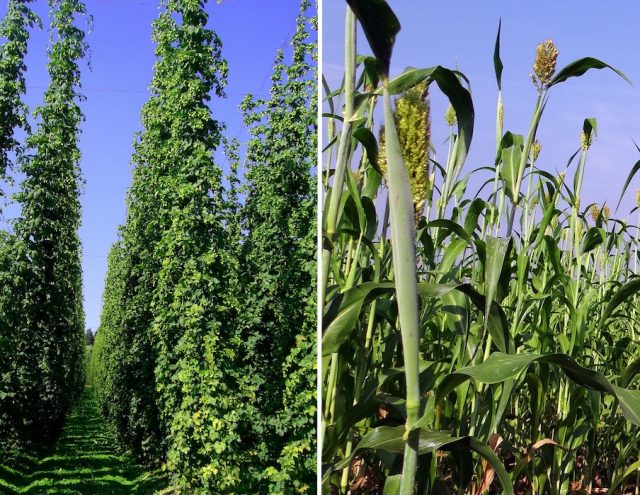

SUE BRATTLE
Bittersweet Tale
of Two Towns
Moutai, Maidstone and
Changing Fortunes
FOOD & DRINK: Moutai town and distillery, China, and brewing in Maidstone, England
AT FIRST glance, it may seem that a brewing town in the south of England and a distillery town in China have little in common. But having grown up in one and visited the other, it seems to me that the people from my hometown would recognize a lot about life in Moutai.
Both towns sit on rivers, which in different ways have shaped their history. In Moutai, the distillery uses five tons of water from the Chishui river every day to make China’s most famous spirit.
In Maidstone, Kent, the River Medway has been the trading route for fruit, vegetables, quarried stones, chalk, cloth, wood – and beer – for centuries, with flat-bottomed barges carrying goods to the bigger nearby towns and across the sea to Europe.

However, the two towns are experiencing different turns of history’s wheel.
Moutai is now home to the world’s largest drinks industry and the town is changing with the times. It is looking abroad to expand its export market (95 percent of its sales are in China), and there is even talk about making the 53 per cent proof spirit weaker for the foreign palate.
“We are trying to build the town as a tourism destination, with a 25.2 million yuan (US$3.87million) investment by the local government,” Ding Da Gong, deputy director of Moutai’s tourism administration, told me during my visit.
Around two million tourists visit Moutai in an average year, and Gong said: “Hardly any of them are foreigners. Most of the tourists are from within the province, or are here on business.”
Bid for Tourists
Moutai is trying to entice visitors with more hotels and roads, hiking trails and tastings of baiju, the generic name for the explosive clear liquor that Moutai is famous for. But the town is a four-hour drive from the airport in south-west China’s Guizhou province capital, Guiyang, and an eight-hour round trip is a big commitment for a visitor. On the other hand, the town offers a unique experience which tourists won’t find anywhere else.
My hometown of Maidstone is in the county of Kent, southern England. This places it perfectly for the tourist trade; Europeans going to the UK from mainland Europe by ferry inevitably drive through Kent on their way to London.

Until the 1960s, Kent was the centre of England’s brewing industry, and had been making beer from hops grown in hop gardens across the county for almost 600 years. In the 1870s, 46,600 acres of Kent was hop gardens. Then something happened that no-one seemed to predict. Today, only 1,000 acres survive. Across England, hop growing shrank from 72,000 acres to 2,650.
The landscape changed before our eyes. Hop pickers, who I can just remember as a small child, carrying long, tapered ladders and cutting the crop off the high “bines” with clippers, were replaced with machines.
Then the hop gardens were “grubbed out” – ripped up and replaced with soft fruits, or housing. Cheaper hops were imported from the United States, New Zealand and Germany. And then came a generation of lager-drinkers, with lager needing far fewer hops. Hop growing and the beer and real ale industry plummeted.
Rollercoaster of Business
By then, most small breweries had been eaten up by big breweries, which later diversified or were bought by international companies. Here is an example: One of Maidstone’s big riverside breweries when I was a child was called Fremlin’s, a family-owned business with an elephant as its trademark. Fremlin’s was bought by brewers Whitbread, which in the 1990s off-loaded all its brewing interests.
Whitbread bought Costa Coffee, among many other interests, and opened 500 coffee shops across China. In 2019 Costa Coffee was sold to the Coca-Cola Company, which has now closed a tenth of Costa’s coffee shops in China due to tough competition. This rollercoaster of business interests and changing tastes makes or breaks communities such as Moutai or Maidstone.

I was reminded of these turbulent changes when I met farmers Tong Hu and Tang Da Rong at their home in Tanchang near Renhuai. This husband-and-wife team sat next to each other like two tree trunks, rooted in their land and proud of the life it has given them.
But there is nothing much romantic about the farmer’s life, and this couple has been rolling with the changes since 2001, when the makers of Moutai first suggested they produce the crop they need. So they moved from cultivating rice to growing sorghum, an attractive grass-like crop, for Moutai. They took a big risk in making the transition, which took three years because their soil needed to reach European Union organic standards demanded by Moutai.
“It was pretty hard,” Tong said, the master of understatement. “We were given free seeds, half-price fertilizer, and technical advice. We grew sweet potatoes during the changeover, and started planting sorghum in 2006.”
‘Parents Grew Corn’
The couple is among 70,000 farmers in the area, and I was told the average annual income per household is about 8,000 yuan (US$1,240). Times have been so hard that Tang told me: “There are more women than men farming here because some of the men go elsewhere as migrant workers to make income.”
All the more remarkable then that Tong and Tang have brought up three children; the son is now a graduate in food science and works for Moutai, one daughter went to medical college and another daughter is a finance graduate.
Will any of them take over the family farm? Tong replied: “My parents grew corn. Sometimes, as a child, there wasn’t enough to eat in the households around here. Now life is getting better. Our children will choose their own careers. We don’t know what they will decide.”

The changes in both towns are only blinks in their long, long histories. Moutai is recorded as making baiju as far back as 135BC. Until 1951 when the distillery became a State Owned Enterprise, little “workshops” – usually named after their owner – produced hundreds of different baijus and they were merged to make the famous brand that is now China’s national drink.
The company’s historian, who spent his working life at the Moutai distillery, is 63-year-old Hu Jingshi. He tells how Mao and the Red Army went through Moutai in 1935 on the Long March, stopping for three days to dress their wounds with the liquor.
Hu said: “We love Moutai because we love China. The buildings have changed, but the spirit of the staff is the same. Moutai will thrive because China will thrive.”
Legacy is Protected
China has taken the wise step of protecting its pride and joy. In 2013, the Moutai distillery became part of the 7th batch of Major Historical and Cultural Sites Protected at the National Level. The technique for making it is protected, too, as an intangible heritage.
Around a century after baiju was first recorded in Moutai, the ancient Romans invaded England and brought hops from Italy to Kent. At first, the tops of the plants were used in salads. For centuries the English drank ale, made from malt and honey, and “small beer”, with very little alcohol content, often as a safer alternative to dirty water.
Just like Moutai had hundreds of small workshops, consolidated by the government into one state-owned company called Kweichow Moutai, Kent was scattered with little brewhouses, in homes or attached to hostelries and often run by women. The idea of brewing hops to make beer with a higher alcoholic content didn’t arrive until the 15th-16th centuries, brought to Kent by merchants from Belgium.


So the landscape changed, with cone-roofed “oast houses” popping up across the countryside, in which the freshly-picked hops were dried in kilns, giving off a soporific smell which drifted on the wind. They were then put in sacks and taken to the breweries. And things carried on in much the same way until the dramatic changes that began in the 1960s, described earlier.
In 2015, the drinks trade plays a very different role in the two towns. Eighty per cent of the population around Moutai is involved in the baiju trade and Kweichow Moutai is now the world’s largest and most valuable drinks company. Maidstone has only a tiny percentage of agricultural workers left with some niche hop growers. The main old brewery in Maidstone is now a shopping mall, while Moutai has ambitious plans for the growth and development of its distillery, making its love it, hate it spirit (I’m in the latter) which is marketed as luxurious and prestigious.
Climate, Soil, Water
But whatever changes take place around towns like these, they hold one trump card. Spirits, wines and beers all get their distinctive flavours from the climate, soil and water where they are made. As a result, communities come to these towns because the product cannot be produced anywhere else.
For example, Yang Yan is a 28-year-old shop assistant in Baiju Street in Moutai, where dozens and dozens of little shops sell and offer tastings of the many baiju spirits made in the town.
Yang doesn’t drink the spirit and has no roots in the area. As she served customers the “royal liquor” her boss makes, spooning it out of ceramic jars into bottles the customers bring with them, she said: “It’s mostly local traders who come here. They like the taste and they come back.

“To me, this is just a job. I have come here from Sichuan on my own, my family are still there but I needed a job.” If young people like Yang don’t share the town’s traditions, then she brings her own with her. This constant change around old industries rooted in their landscape is what helps them to survive.
In Maidstone, mechanisation and cheap imports triggered the loss of jobs around the hop growing industry. That cannot happen in Moutai. The company’s sorghum buyer is Dheo Yuan Hang, and he explained: “Most of the process, from planting the seeds to getting sorghum to the warehouse, is done by hand.” It is for the simplest reason, too. “Our geography is mountainous,” Dheo said, looking out over miles of terraced farming accessible only by narrow footpaths. “No machinery can get to the crop.”
So in Moutai, this restraint will keep the status quo in place, and the sweet smell of sorghum will continue to permeate the streets.
Wheel of History
In Maidstone, where change was so rapid that agriculture went into freefall, micro-breweries began springing up, with some pubs making beer on the premises. Across the world, craft beers started gaining popularity – and optimists said the light and aromatic hops which Kent became famous for were back in demand.
It may be a very slight and short-lived turn of the wheel of history for Maidstone, as lager still dominates the industry. If Moutai carries out its expansion plans, local people will soon experience a life-changing turn. But taken over 2,000 years, they are changes that towns like these take in their stride, while their rivers continue to flow steadily through them.
Sue visited Moutai on a paid-for Press trip while she was living and working in China. Thanks to Maidstone Museum for supplying photographs from its archive.
Top photos: A hop garden, and a surghum field. Alexander Bálly/Pixabay, and Bishnu Sarangi/Pixabay.
February 2021
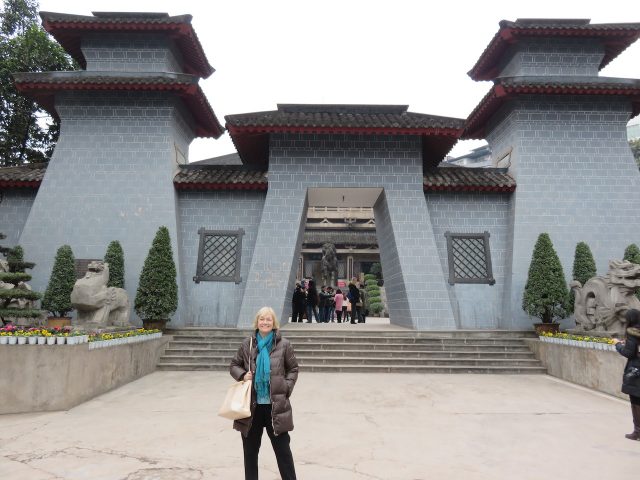
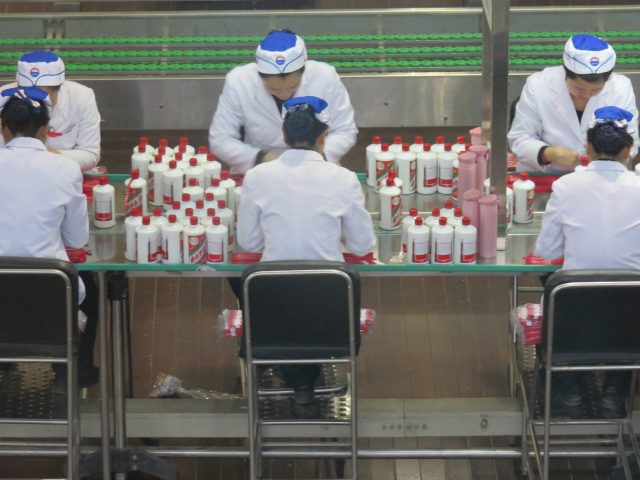
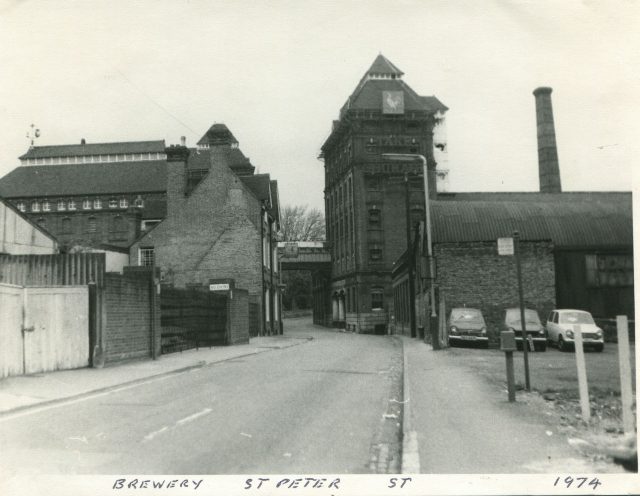
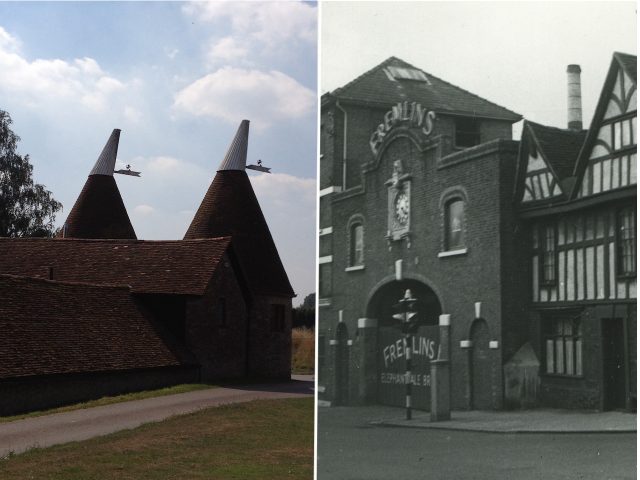
Here's 100% Proof Moutai's No Small Beer

KWEICHOW MOUTAI is China’s third most valuable publicly-listed company, worth 2.65 trillion yuan (US$410 billion), and the world’s largest drinks company.
Sales dropped temporarily during Chinese leader Xi Jinping’s anti-corruption drive, which began in 2012, when government officials and civil servants were banned from offering Moutai at public meetings. They have revived since.
Mao Zedong served it to US President Richard Nixon in 1972 during Nixon’s historic state visit to China. In 1974, US Secretary of State Henry Kissinger told Deng Xiaoping, China’s future paramount leader: “I think if we drink enough Moutai we can solve anything.”
Beijing opened a Moutai Museum near the Forbidden City and just off Tiananmen Square in 2019.
Moutai is drunk in stemmed thimble-sized glasses. At official dinners each guest round the table will propose a toast and you drink it ‘down in one’ then the glasses are filled again. There is a myth that it doesn’t give you a hangover.
RELATED
 IN WITH THE GIN CROWD: Thirty-five years ago I flew into the city of Malaga in southern Spain and immediately set off along the coast. That’s what you did back then, Malaga was just the place you flew to on your way to stylish Marbella or the Costa del Sol’s mass tourism hotspots of Torremolinos and Fuengirola… READ MORE
IN WITH THE GIN CROWD: Thirty-five years ago I flew into the city of Malaga in southern Spain and immediately set off along the coast. That’s what you did back then, Malaga was just the place you flew to on your way to stylish Marbella or the Costa del Sol’s mass tourism hotspots of Torremolinos and Fuengirola… READ MORE
 MUSEUM QUALITY FOOD: The Chinese province of Sichuan takes its distinctive style of cooking very seriously — so much so that it has set up a museum devoted to the subject… READ MORE
MUSEUM QUALITY FOOD: The Chinese province of Sichuan takes its distinctive style of cooking very seriously — so much so that it has set up a museum devoted to the subject… READ MORE
 JINSHA SITE MUSEUM: In 2001, builders in China discovered a previously unknown ancient site, and subsequent excavations uncovered a vast treasure trove. READ MORE
JINSHA SITE MUSEUM: In 2001, builders in China discovered a previously unknown ancient site, and subsequent excavations uncovered a vast treasure trove. READ MORE
 CAVES FULL OF TREASURE: For 56 years, Fan Jinshi tended a treasure trove of ancient Buddhist masterpieces at the Mogao Caves in China. Now she’s been rewarded with “Asia’s Nobel Prize”, worth $2.5 million… READ MORE
CAVES FULL OF TREASURE: For 56 years, Fan Jinshi tended a treasure trove of ancient Buddhist masterpieces at the Mogao Caves in China. Now she’s been rewarded with “Asia’s Nobel Prize”, worth $2.5 million… READ MORE
 LUNCH AT THE WORLD’S BEST RESTAURANT: Beijing’s TRB Hutong has been named TripAdvisor’s Best Fine Dining Restaurant in the World. So what makes it so special? READ MORE
LUNCH AT THE WORLD’S BEST RESTAURANT: Beijing’s TRB Hutong has been named TripAdvisor’s Best Fine Dining Restaurant in the World. So what makes it so special? READ MORE
 BUG, SCORPION STREET SNACKS: Starfish, larvae, bugs and seahorses were among the specialities on offer at Beijing’s Donghuamen Night Market. We recall this unusual market… READ MORE
BUG, SCORPION STREET SNACKS: Starfish, larvae, bugs and seahorses were among the specialities on offer at Beijing’s Donghuamen Night Market. We recall this unusual market… READ MORE
RECOMMENDED
 WELCOME TO OUR WORLD! Afaranwide’s home page – this is where you can find out about our latest posts and other highlights. READ MORE
WELCOME TO OUR WORLD! Afaranwide’s home page – this is where you can find out about our latest posts and other highlights. READ MORE
 TOP 10 VIRTUAL ATTRACTIONS: Many of the world’s most popular tourists sites are closed because of the coronavirus crisis, but you can still visit them virtually while you’re self-isolating. READ MORE
TOP 10 VIRTUAL ATTRACTIONS: Many of the world’s most popular tourists sites are closed because of the coronavirus crisis, but you can still visit them virtually while you’re self-isolating. READ MORE
 SHIMLA, QUEEN OF THE HILLS: Government officials once retreated to Shimla in the foothills of the Himalayas to escape India’s blazing hot summers. Now tourists make the same journey. READ MORE
SHIMLA, QUEEN OF THE HILLS: Government officials once retreated to Shimla in the foothills of the Himalayas to escape India’s blazing hot summers. Now tourists make the same journey. READ MORE
 TEN THINGS WE LEARNED: Our up-to-the-minute guide to creating a website, one step at a time. The costs, the mistakes – it’s what we wish we’d known when we started blogging. READ MORE
TEN THINGS WE LEARNED: Our up-to-the-minute guide to creating a website, one step at a time. The costs, the mistakes – it’s what we wish we’d known when we started blogging. READ MORE
 TROUBLED TIMES FOR EXPATS: Moving abroad can seem an idyllic prospect, but what happens when sudden upheavals or the inescapable realities of life intrude? READ MORE
TROUBLED TIMES FOR EXPATS: Moving abroad can seem an idyllic prospect, but what happens when sudden upheavals or the inescapable realities of life intrude? READ MORE
Disclosure: Afaranwide is an affiliate of leading travel operators such as Booking.com and Japan Rail Pass. If you purchase through our site we receive, at no additional cost to you, a small commission. We only work with companies we have used and recommend.



